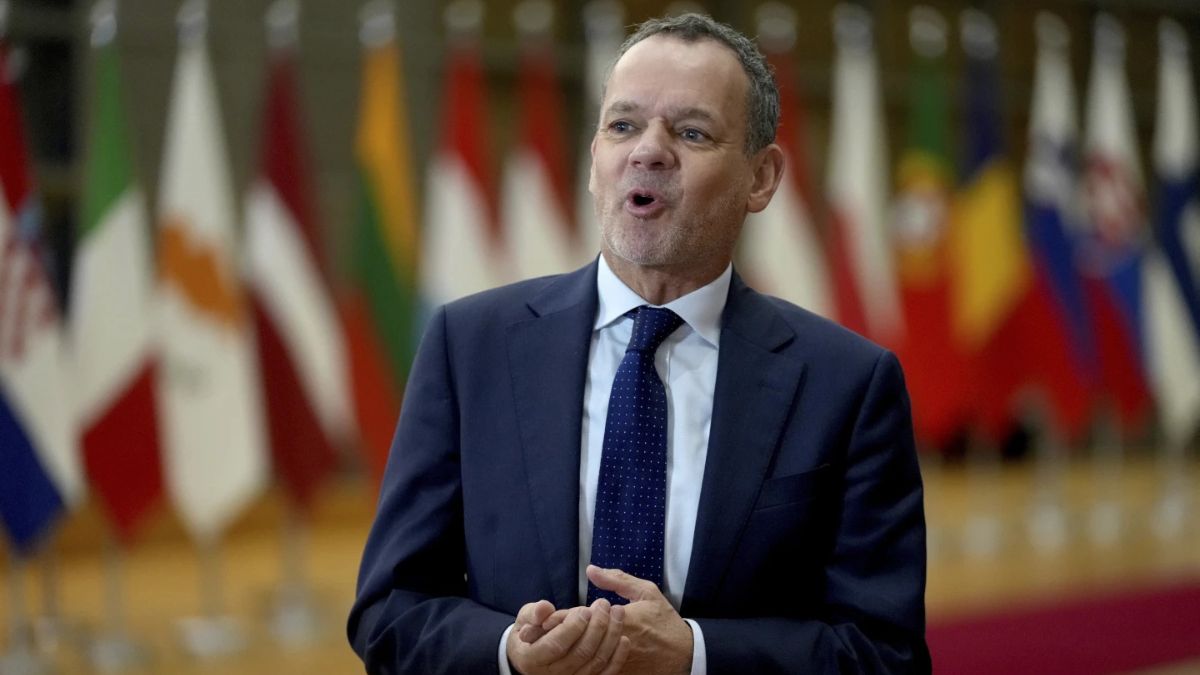The Netherlands’ position on Israel is increasingly marked by division and political instability, sharpened by the worsening humanitarian crisis in Gaza.
The debate over how far the Dutch government should go in pressuring Israel has already claimed one major casualty: the resignation of Foreign Minister Caspar Veldkamp and the withdrawal of his New Social Contract (NSC) party from the caretaker cabinet.
How Veldkamp’s resignation shook the Hague
Veldkamp, who once served as an ambassador to Israel, resigned on August 23 after failing to secure cabinet backing for tougher action against the Israeli government.
ALSO READ | Netanyahu clears Gaza City offensive, orders new hostage talks
He had informed the parliament that he intended to push for stricter measures in response to Israel’s renewed assault on Gaza City, but admitted he no longer had the confidence to carry them through. His departure triggered an immediate exit by the rest of the NSC.
Party leader Nicolien van Vroonhoven said simply: “The situation has to improve. It didn’t. So now steps are being taken.”
Deputy Prime Minister Eddy van Hijum added that while Veldkamp strongly believed in the need for additional measures, “the brakes were constantly applied”.
Prime Minister Dick Schoof expressed regret at NSC’s withdrawal, acknowledging the challenge of steering the country in a caretaker role. Others were less forgiving. The populist Farmer-Citizen Movement (BBB) condemned NSC’s departure as irresponsible and accused the party of leaving the Netherlands rudderless at a time of crisis.
The resignations delayed a parliamentary debate on Dutch policy towards Israel. When it finally took place, lawmakers rejected a series of proposals that would have put significant pressure on the Israeli government. These included a boycott of products from Israeli settlements in the West Bank, a ban on the purchase of Israeli weapons and a motion to recognise a Palestinian state.
Defence minister Ruben Brekelmans warned that cutting off weapons procurement from Israel would harm Dutch military readiness, although he said a boycott could be considered as part of a broader European approach.
Partial consensus on Israel
Despite these rejections, MPs did reach consensus on some points. The parliament agreed on the need for the “total destruction” of Hamas and called for maximum pressure on countries seen as sheltering or supporting its leaders. Lawmakers also urged Israel to grant international and national journalists access to Gaza to report on the war.
Even before this latest rupture, the Netherlands had already taken steps that suggested a tougher line on Israel. It halted direct arms exports to the country months after the outbreak of war in October 2023, although it continues to supply spare parts for F-35 fighter jets via third countries.
In July, The Hague barred far-right Israeli ministers Itamar Ben Gvir and Bezalel Smotrich from entering Dutch territory. It also joined more than twenty other countries in condemning a major Israeli settlement project in the West Bank as contrary to international law.
Veldkamp had been pushing within the European Union for economic and trade sanctions on Israel. Earlier this year, he supported a legal review of the EU’s Association Agreement with Israel, which pointed to signs of human rights violations. The Dutch government has also pressed for Israel’s suspension from the EU’s Horizon research programme and reduced trade links.
In a significant move, Israeli defence companies have been barred from participating in the Netherlands’ largest military exhibition, NEDS, due to be held in November. Organisers cited security and organisational reasons, but the decision reflects a broader shift in Dutch policy.
Caretaker government under strain
The deepening political row comes as the humanitarian situation in Gaza grows more desperate. On the day of Veldkamp’s resignation, a UN-backed food security body declared a famine in Gaza City, warning it was likely to spread without a ceasefire and the lifting of aid restrictions.
Opposition parties seized on the moment to accuse the cabinet of dithering while civilians faced famine, ethnic cleansing and even genocide. Some MPs described the long delays in debating tougher measures as a source of national shame.
ALSO READ | Gaza truce hopes reignite: Hamas accepts ceasefire deal, hostage exchange eyed
The Dutch government is itself fragile. It has been operating as a caretaker administration since June 3, when Geert Wilders’ Party for Freedom withdrew from the coalition over migration policy.
That collapse left only the liberal VVD and the BBB in office, together controlling just 32 of the 150 seats in parliament. Prime Minister Schoof even had to cancel a planned trip to Ukraine to deal with the crisis at home.
Elections are scheduled for October 29, but it could take months after that before a new government is in place. Until then, the Netherlands is left with a weakened and divided administration trying to navigate one of the most divisive foreign policy debates in recent memory.
